Ko Ye Naing never imagined he would one day become an eco-printer – working with leaves, fabric and handmade dyes to create beautiful natural designs.
It’s a far cry from his life just two years ago, dealing with handcuffs, complaints, criminals, courts and weapons.
The former police officer in Taungoo district, Bago Region had to leave the job he had held for six years in 2021 when it changed beyond recognition following the military coup in February that year.
“Ever since childhood I had wanted to be a cop who investigates crimes and arrests criminals,” said Ko Ye Naing by phone as he explained how he became a policeman.
He said that at first, he had wanted to believe the military’s claim that it took control of the country “in accordance with the law” to restore order.
However, he later witnessed police officers being ordered by military officials to arrest and bring fake charges against innocent people, cover up for soldiers who killed people, and even kill protesters who were demanding the return of democracy.
He recalled one incident at a hospital in which he had to rush to return the body of a protester, who had been shot dead by junta troops, to the family before it was snatched by soldiers. The victim was his wife’s cousin, a university student aged just 20 years old.
Realizing that the generals’ words were just lies and seeing their brutal acts against civilians, the 28-year-old police lance corporal decided he no longer wanted to work under them. He quit his post and joined the civil disobedience movement (CDM) in August 2021.
He and his wife left their police housing and fled to a liberated area, where he stayed for several months and fought with resistance against junta troops.
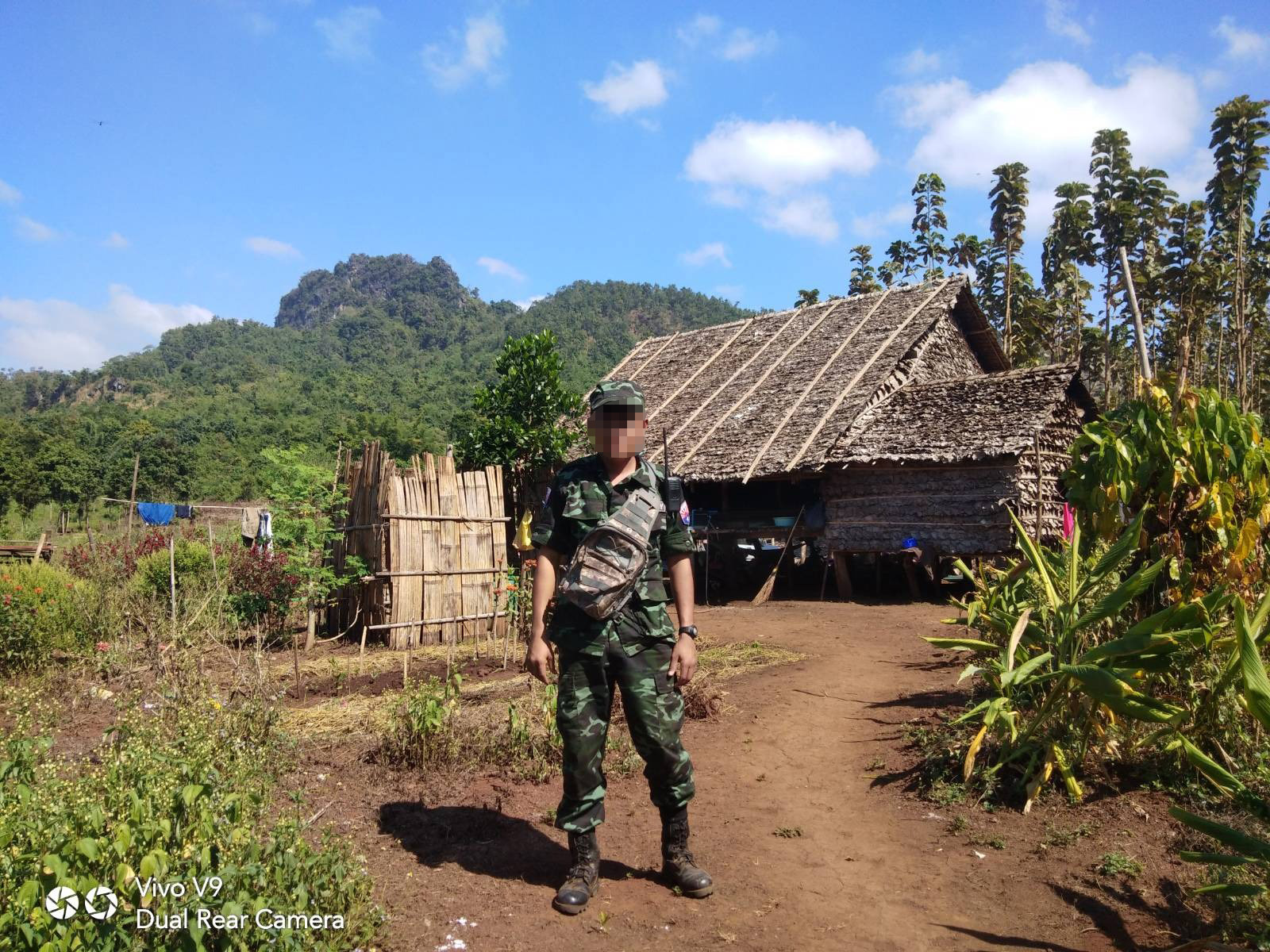
He also joined other CDM police and soldiers in providing military training to young resistance fighters, before eventually crossing into a neighboring country for his wife’s health.
His wife had worked as a Ministry of Health civil servant but joined the CDM a week after the military takeover and participated in anti-coup protests.
According to the parallel National Unity Government (NUG), over 400,000 civil servants refused to work for the regime and joined the CDM following the coup. Nearly 3,000 soldiers and 7,000 police have also defected in defiance of military rule.
Knowing that the junta targets CDM members and their families with arrest, Ko Ye Naing and his wife cut ties with their close relations for fear of putting them in danger.
“There are a lot of difficulties as both of us no longer have jobs or salaries since joining the movement [CDM],” he said.
At first, the couple had to take casual work to earn a living. But then Ko Ye Naing happened to join a HAM-Collections training session on eco-printing – a form of natural printing and dyeing where plants, leaves and flowers are used to create shapes, colors and marks on fabrics.
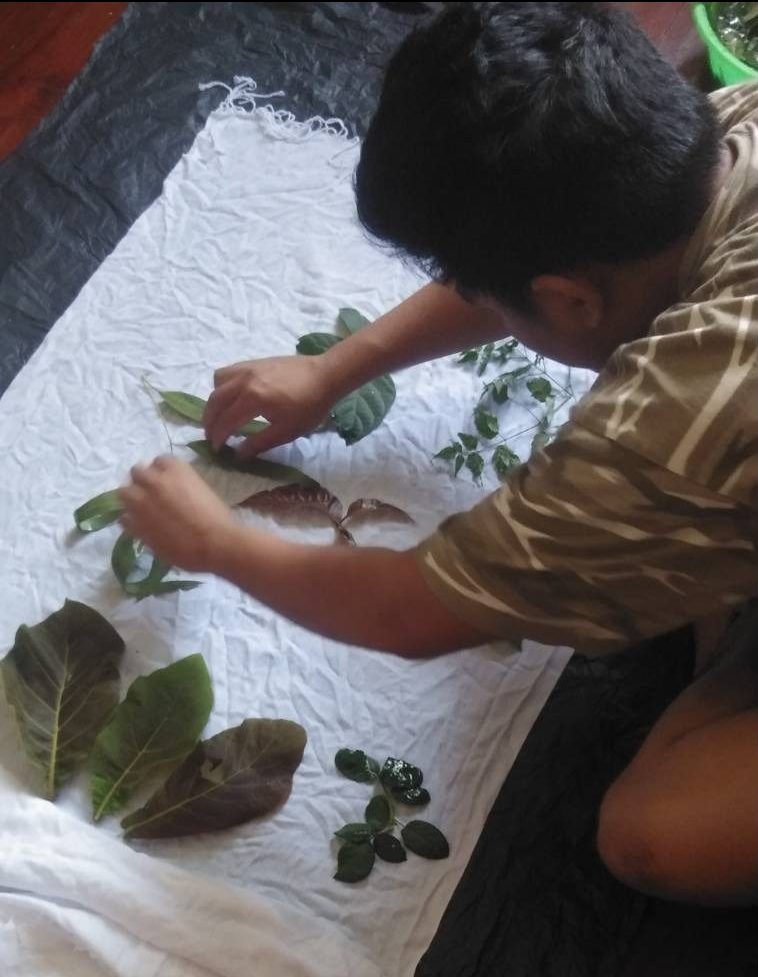
HAM (Heroes Assist Migrants) is an organization providing vocational training in eco-printing, embroidery, and natural handmade soap to create jobs for CDM-ers and migrants in Thai-Myanmar border areas.
The former police officer turned eco-printing artist said that while earning a living through his new work, he had also become fascinated by the unique and customized designs he could create on clothes and fabric.
“Eco-print clothing is popular with everyone. And I found the process stress free and peaceful.”
Ma Kao, the founder of HAM-Collections, is an environmental activist who fled Myanmar to evade arrest by junta authorities while heavily pregnant with her first child.
She and a friend launched HAM in May last year to create alternative means of income and mental health support for people enduring financial hardship and fleeing junta violence following the coup.
“Making handicrafts encourages focus, concentration and creativity while helping to reduce negative vibes at the same time,” explained Ma Kao, who used to train micro-SMEs in areas such as upcycling.
Over eight months, HAM-Collections has conducted eight vocational courses for 32 CDM-ers and 42 migrants.
Ma Kao defines the vocational training as “teaching the striking civil servants to fish instead of handing them fish”, to help them survive in the long term.
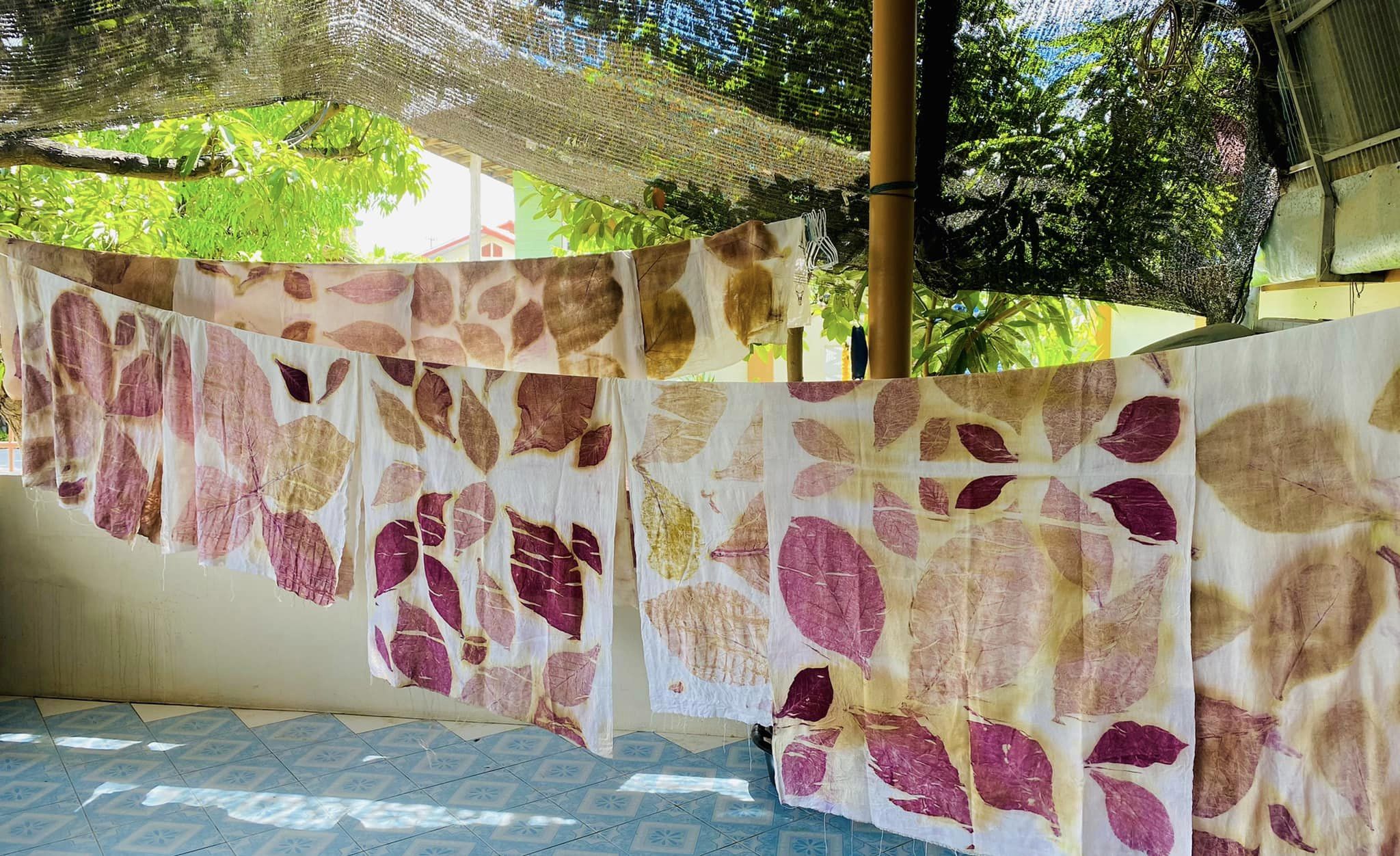
One trainee, a former teacher who left her job of 15 years and fled after being harassed by junta officials, told The Irrawaddy that handicraft training with HAM had given her hope after suffering anxiety and hardship.
“I feel relief and at ease while doing this [handicrafts],” she said, after completing her course.
HAM also helps trainees and graduates sell their handicrafts at shops and fundraising events. It pays them per finished product and donates 30 percent of gross sales revenue to displaced people.
Founder Ma Kao shared her pleasure in seeing trainees able to make their own products and earn income. Some participants have even started their own brands after the training, she said.
Ko Ye Naing said that he now earns 2,500 to 3,000 baht (US$72-86) per month working with HAM.
Previously, he and his wife worked long hours in grueling and underpaid jobs at a factory. Manually removing unwanted material from 100 items of clothing earned them just 20 baht [1,680 kyats], and they had to work 10 hours to finish around 400 items.
He added that the favorite part of his new work is contributing to the revolution through his income as the organization donates a share of sales to displaced people.
HAM conducted training in quality control and marketing last month, with more courses planned later this year.
However, legal and security issues in exile have posed problems for the organisation, with operating costs spiking when team members get detained.
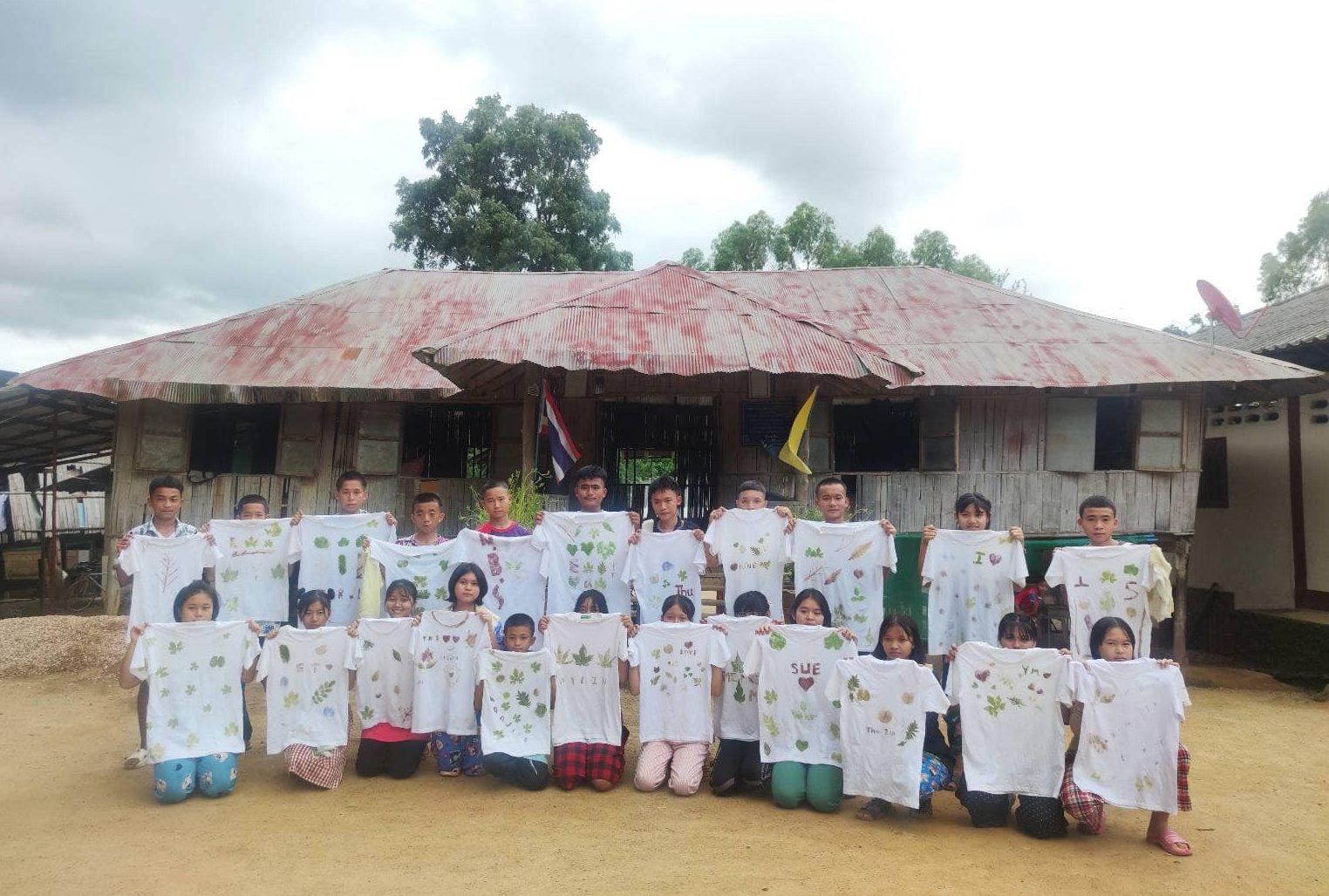
“The main challenge we are facing is the security issue,” Ma Kao said. HAM has responded by changing its training location to avoid problems.
She said some participants had asked to be taken on as salaried workers, but funds were currently too tight.
However, she tries to ensure they are paid in advance for their products rather than waiting until they are sold.
“Despite all the difficulties we have faced, we have survived this far. So I urge everyone to keep strong and fill the gaps where we can until the revolution succeeds,” she said.
Former cop Ko Ye Naing has now graduated HAM’s teacher training program and is sharing his eco-printing techniques with other CDM-ers and migrants.
He earns extra income from teaching and has also begun receiving financial support from the parallel civilian National Unity Government (NUG) under its CDM program.
He remains concerned however over security and the future; neither he nor his wife are earning regular wages.
“But I have never regretted joining the movement [CDM],” he said.
His wife, Ma Phue Pwint, who is a CDM health worker, quickly adds that they can still live with a clean conscience and, compared with others who have sacrificed all for the revolution, their difficulties are nothing.
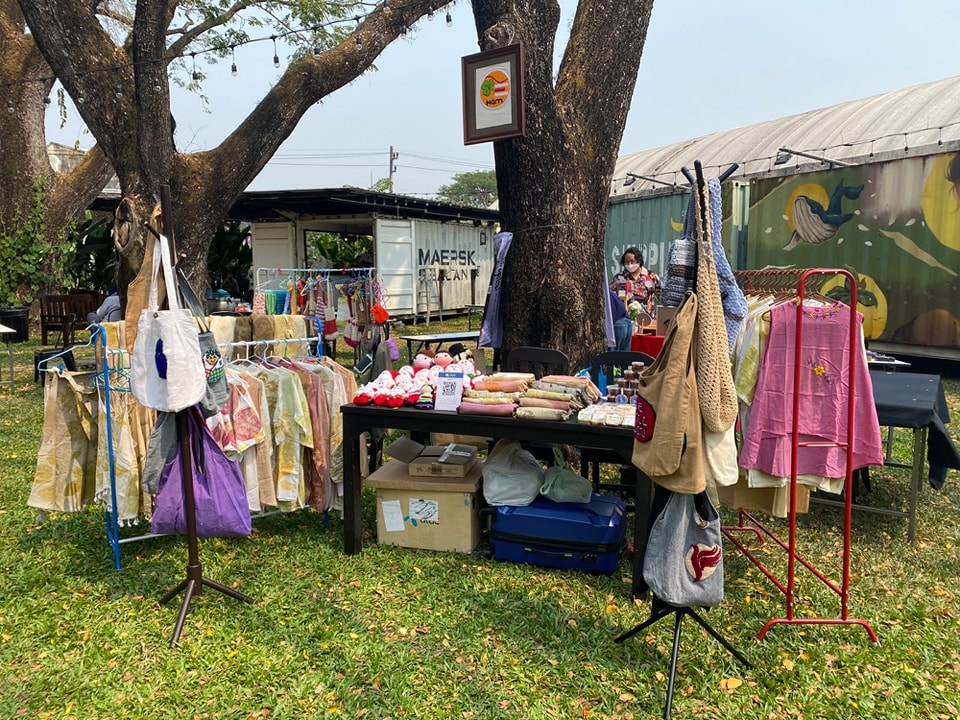
Ma Phue Pwint began producing handmade bags recently after taking a sewing class with the Women Lead Resource Center (WLRC), a community organization working for female empowerment.
She added that she is proud of her husband for refusing to follow the regime’s orders and standing with the people.
“I thank you for being the man I always thought you were,” she told her husband as he returned home after making an eco-print bedsheet at HAM’s workshop.
“I want to say to everyone that we will topple this dictatorship together and go back to our homes in victory,” Ma Phue Pwint added.

















